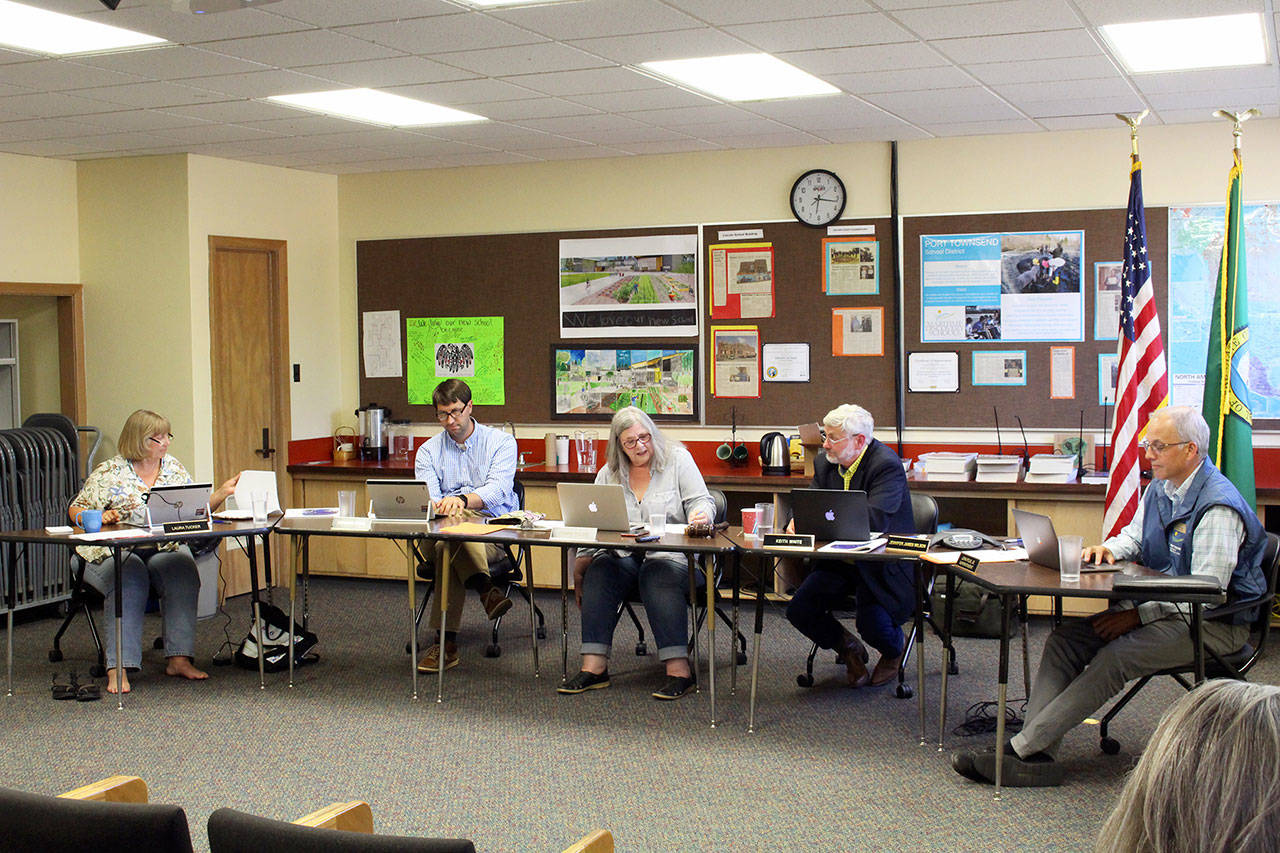PORT TOWNSEND — The Port Townsend School Board has unanimously approved a 2019-20 budget that includes a deficit.
The 2019 budget specifies an $813, 471 deficit, but Finance Director Amy Khile predicts it to be less, as she did not factor in Safety Net or Secure Rural Schools funding that the school district anticipates receiving each year.
The board approved the budget Thursday evening, after an early special session when Khile went over the budget in detail.
Khile predicts that the school will receive $19,260,702 in revenue throughout the next year, but the school district will need to spend $20,074,173. This will cause the district to dip into its $2.1 million in reserves.
Part of the deficit is caused by the loss of taxable revenue the district is able to receive, due to what has been called the “McCleary fix,” which was instituted by the state Legislature to comply with a state Supreme Court order that the state pay for basic education, an order known as the McCleary decision on a lawsuit filed by Stephanie McCleary of the Chimacum School District.
The McCleary fix capped how much funding a school can receive as a result of local taxes in the community.
In the 2018-19 school year, the Port Townsend School District received over $3.2 million in taxes from the community. The prediction now is that the district will receive less than $3 million.
Secure Rural Schools payments are given to rural communities where federal logging occurs. The district received more than $200,000 in 2018, and Khile hopes for another high amount this year, but it was not included in the budget because no set amount is received each year, if the district receives any at all.
“We never know if we’ll get it or not,” Khile said. “One year we received $35,000 and last year we received $200,000.”
Enrollment is predicted to stay at about the 1,200 student mark for the next four years, which includes Running Start and Alternative Learning (ALE) students who are enrolled in the OCEAN program.
The district has been careful to apply for Safety Net funding, which assists with special education funding for Individualized Education Program (IEP) students, Khile said. It is expected that it will now what the funding is in June.
The district will know about Secure Rural Schools funding in the spring.
The school fiscal year ends in August.
The four-year plan is based on an expected continuing drop in revenue each year, but Superintendent John Palm said he is not worried at this point because it is hard to accurately predict and there will be time to adjust the trend, he said at the board meeting.
This year’s deficit was expected and besides that, Khile said she is happy with the budget.
“I think we knew this year was going to a deficit over revenues,” Khile said. “We planned for it.”
________
Jefferson County reporter Zach Jablonski can be reached at 360-385-2335, ext. 5 or at zjablonski@peninsuladailynews.com.

